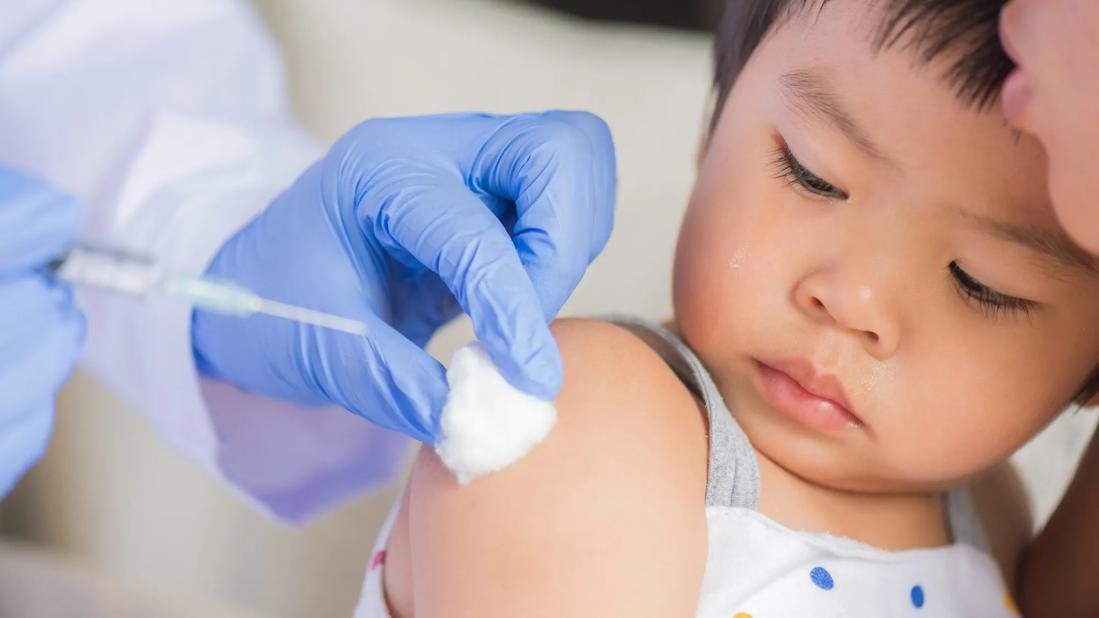These kids’ visits include getting important vaccines and checking on developmental milestones

Do kids really need vaccines and regular well-checks? Pediatrician Wadie Shabab, MD, says these visits play an important role in protecting children’s health. ”
Advertisement
Cleveland Clinic is a non-profit academic medical center. Advertising on our site helps support our mission. We do not endorse non-Cleveland Clinic products or services. Policy
Vaccines have been shown to greatly reduce the risk of many serious diseases, from polio to chickenpox, and are considered safe for most children. And being on a well-child visit schedule helps make sure your child is meeting important developmental milestones, as well as managing and preventing new mental health and physical findings.
Dr. Shabab explains when your child needs which shot and a trip to the doctor’s office.
Pediatricians recommend following a well-child check schedule, since it provides opportunities for growth tracking, developmental screenings, and keeping up with recommended vaccines.
Vaccines can help lower the risk of contagious illnesses like whooping cough and measles, which may cause complications in children. Parents can discuss their child’s specific health situation with their provider to make the best decision.
Additionally, well-checks are necessary to track and document your child’s growth and developmental and behavioral milestones. During a well-check visit, parents and caregivers can discuss any concerns they have when it comes to vaccinations and their child’s overall health.
“Children grow and develop fast — and the rate of this growth is the fastest in the first three years of life,” notes Dr. Shabab. “Your healthcare provider will monitor your child’s weight, height, BMI, vital signs, hearing, vision, developmental/behavioral milestones, lead, TB and other screening tests at the appropriate age and interval during their well-child visits.”
Advertisement
This information, along with discussing your child’s diet, sleeping, academic achievement, screen time and safety, will help your provider in partnering with you in maintaining and helping your child reach their health and developmental goals.
During a well-child visit, your child’s pediatrician will perform a thorough physical exam. This typically includes:
Physical exams during well-child checks are important for several reasons, and just to name a few:
The American Academy of Pediatrics recommends the following:
Advertisement
Key
– DTaP: Diphtheria, tetanus, acellular pertussis vaccine
– HAV: Hepatitis A vaccine
– HBV: Hepatitis B vaccine
– Hib: Haemophilus influenzae type B, or flu
– HPV: Human papillomavirus vaccine
– IPV: Inactivated polio vaccine
– MCV4: Meningococcal conjugate serotype A, C, W and Y vaccine for meningitis
– Men B: Meningococcal Serotype B vaccine for meningitis
– MMR: Measles/mumps/rubella vaccine
– PCV: Pneumococcal conjugate vaccine for meningitis
– RSV: Respiratory syncytial virus antibody immunization
– Rotavirus: Vaccine against potentially life-threatening diarrhea
– TB: Tuberculosis screening
– Varicella: Chickenpox vaccine
Regular checkups and immunizations are tools many families use to support their child’s health. Talking with your pediatrician can help you decide what’s best for your child.
Childhood immunizations help protect your child from getting a number of illnesses. These vaccines, mostly given as shots at well-visits, can help prevent easily spread diseases that can cause serious health problems.
And having a pediatrician track your child’s developmental and growth milestones can help you manage your child’s overall health and wellness.
“Regular checkups foster a relationship between the child, parents and healthcare providers, promoting open communication about health concerns,” emphasizes Dr. Shabab. “Overall, well-child checks are crucial for monitoring a child’s health and development, ensuring they have the best start in life.”
Advertisement
Learn more about our editorial process.
Advertisement

Adding extra formula, cereal or medications to your baby’s bottle is a dangerous and misguided practice

Teaching your baby to sign may help ease frustrations before they can talk, but it’s not a must-do

Babies can get congested easily, but you can calm their cough by keeping them hydrated, using nasal drops and running a humidifier

Try to burp your baby mid-feed and after they finish eating — but don’t sweat it if they don’t burp

Most babies will recognize their name by about 9 months old

Clean your baby’s mouth with a washcloth or small toothbrush if they have a tooth or you suspect thrush

‘Social smiles’ typically start around 8 weeks old, while laughter comes later — around 4 to 6 months

Most infants can roll from tummy to back by 6 months old — but remember, every child develops at their own pace

Wearing a scarf, adjusting your outdoor activities and following your asthma treatment plan can help limit breathing problems

Your diet in the weeks, days and hours ahead of your race can power you to the finish line

When someone guilt trips you, they’re using emotionally manipulative behavior to try to get you to act a certain way